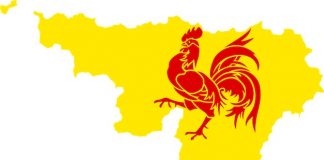CETA
TTIP: conquest by stealth or plunder, American style
WHEN a pickpocket has designs on your wallet, he devises some clever way to distract your attention. A prime example of this is the Canada-EU Trade Agreement (CETA) recently signed in Brussels and now presumably to be referred to all EU countries for a ratification that is assumed to be virtually automatic. What harm can there be in a trade agreement with good
Τhe Battle over CETA is far from over
No more than two days were needed for the CETA text, only just signed in front of the cameras, to be rejected again. The German Greens announced their intention of blocking its ratification, in its present form, in the Bundesrat, something that is within their capacities given the way that its system functions. Is the participation of the Bundesrat indispensable for ratification of the treaty? German jurists are working on this question, and it is thorny.
Tsipras in Wallonia. Is anybody to defend European citizens?
There was a huge amount of EU tub-thumping yesterday (30 October), as the EU and Canadian summit happened in a very rushed manner and the CETA* deal was signed by Justin Trudeau and Jean-Claude Juncker. The media have presented the signing as the end of the journey for CETA saying that it’s time for everyone to accept this trade deal as finalised.
UN Expert Warns EU, Canada Against Signing CETA Deal Without Referendums
"The corporate-driven agenda gravely endangers labour, health and other social legislation, and there is no justification to fast-track it … Civil society should demand referendums on the approval of CETA or any other such mega-treaty that has been negotiated behind closed doors," Alfred de Zayas, the UN Independent Expert on the promotion of a democratic and
Soutien à la Wallonie contre le CETA + scandale en préparation
Le chef de file des libéraux et démocrates au Parlement européen, Guy Verhofstadt (Open VLD/ADLE), a estimé mardi que le Conseil commerce du 11 novembre prochain pourrait revenir sur la proposition de la Commission européenne de faire du CETA un ’accord non-mixte’, pour le considérer comme relevant de la compétence exclusive de l’UE.
Stay strong, Wallonia! Bleib stark, Wallonien! Tiens bon, Wallonie!
We support Wallonia and its prime minister Paul Magnette for courageously standing up against CETA. We ask you to stop bullying Wallonia and the Brussels region for their democratic decision to oppose CETA. The EU-Canada trade deal must be completely renegotiated to remove any special rights for corporations -- at the minimum.
People power is ending free-trade deals
The corporations and political elites that have been steering free-trade deals for many years are finding they are losing control. Strong public resistance and opposition from national and regional governments in Europe are throwing the controversial TTIP and CETA trade deals off track.
Germany as crisis-exporter, Wallonia and EU
Late on Friday, Canada’s trade minister – the former FT journalist Chrystia Freeland – declared that the trade agreement with the EU (the so-called Ceta) had failed. She’d been commuting between Brussels and Namur, the seat of Wallonia’s regional parliament, for a few days, trying to get the region’s left-wing government to support the trade deal. But her efforts, and those by others, were in vain. Wallonia didn’t budge. All the EU leaders that were in Brussels to seal the deal ahead of Justin Trudeau’s visit on Thursday, had to return back home empty-handed.
Wallonia resists EU, defends Justice and Democracy in all Europe
The opposition to CETA and TTIP has been unprecedented in the history of the EU. Concerns have been expressed by millions of people across the continent, including lawyers, academics, political parties, local authorities and virtually all sectors of civil society. Many governments have also expressed reservations on CETA. Only the Walloons, however, had the guts to show it the red card.
Stop CETA, stop TTIP – Statement by legal experts
Investment protection and investor-state dispute settlement (ISDS) mechanisms are perhaps the most contentious aspects of TTIP and CETA. These mechanisms provide foreign investors with the right to sue the EU or its Member States in private tribunals over potential losses in profit due to current or new public welfare regulations.









